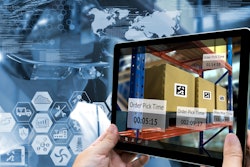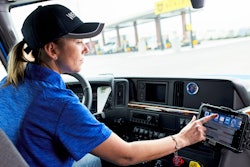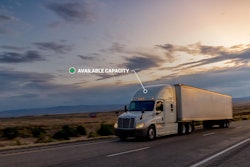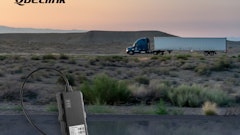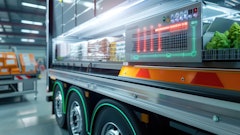
In the food and beverage industry, long-term sustainability relies on scale. How can I improve business operations? How can I stay competitive in a crowded and difficult market? Commercial fleet management can offer answers to these questions.
According to Gartner’s latest Market Guide for Transportation Mobility, the global commercial telematics market continues to grow at approximately 25% per year. Further, according to the 2021 State of Connected Operations Report: Customer Insights and Trends, 90% of respondents said fleet management platforms allow them to focus their time on other tasks to improve the company’s bottom line, while 80% said they’ve seen increased ROI by connecting their fleet safety and operation data. As a result, many businesses are developing their strategy for future scalability through the increased use of telematics and fleet management software.
Smarter deployment of commercial fleets is making food and beverage extremely competitive. From climate-controlled transport and storage to timely order fulfillment, optimizing a fleet strategy can reduce operating costs, freeing up resources for stocking shelves and exceeding customer expectations. In addition, intelligent fleets can support customer experience (CX) efforts through real-time tracking and customer engagement.
If you’re looking to grow and scale your food and beverage fleets, here are a few more ways connecting your commercial fleet can make a difference:
Exceptional customer service
All else created equal, customer experience consistently ranks among the highest areas of competitive edge among buyers. Particularly in crowded fields, a negative experience can leave a lasting impression that will hinder a business’s ability to grow. Improving the delivery of goods is important to your customers and therefore your bottom line. Next-generation connected fleet and safety intelligence platforms offer the insight needed to understand customer expectations as they grow and develop in real-time.
Commercial fleets play a vital role in establishing exceptional customer service, as they serve as the delivery mechanism for goods themselves. Customers expect communication, transparency and consistency, which is impossible if fleets aren’t woven into the fabric of the overall customer experience approach. By focusing on a customer-first premise, paired with deep fleet knowledge, fleet managers can use technology to focus on priorities and align solutions to their day-to-day initiatives and long-term goals. As the food and beverage industry becomes more crowded, establishing a presence as a leader in customer experience can be a powerful differentiator.
Seamless data integration to increase productivity and profitability
Data in a vacuum is worthless. Information gathered across operational and financial processes mean nothing without the right context. That’s why the most successful businesses adopt an analytics-first approach from the outset. From optimizing routes to managing cold chain, avoiding spoilage and contamination, the sooner you have a real-time, end-to-end operational view, the sooner you can make smarter decisions and operate more efficiently.
For example, a more traditional approach to fleet management might account for the number of assets on the road, average spend on fuel, and the average time for delivery. From an organizational analytics perspective, this leaves a lot on the table. Modern asset management solutions provide a much deeper look into fleet data, offering insights into the impact of driver behavior on higher-than-necessary fuel consumption, providing 24/7 accurate temperature control for food and beverage deliveries where the cold chain must be maintained, and showing how specific routes contribute to schedule efficiency. This level of detail is a stronger complement to overall analytics systems, so every aspect of the business can be optimized for efficiency.
Smarter business decisions
It’s critical for your business that goods arrive on-time and protected. To accomplish this, you need to be able to adapt and respond quickly to customer needs, inclement weather, or even adverse traffic conditions. By utilizing a connected fleet and safety management solution, fleet managers can utilize real-time insights to deliver on customer expectations no matter the challenges at hand.



